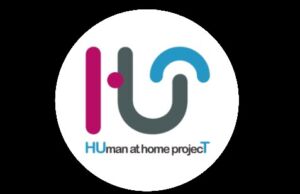Marketing
Following in the footsteps of several decades of marketing research in Montpellier, the MRM-Marketing group's research is structured around 3 main areas:
- Emotional dynamics - Experiential marketing and affective reactions,
- Dynamiques relationnelles - Relationship marketing, digital marketing and brand relationships and
- Competitive dynamics - Communication strategies and sales forces.
The aim of this research is to make a theoretical contribution to the field of marketing, while responding to managerial and societal demands. It is in line with the current issues of sustainability and digitalization, which underpin the adoption of new models of consumption and behavior. More specifically, this work aims to understand the service or consumption experience (its components, antecedents and consequences) from the point of view of the various stakeholders (customers, consumers, citizens, associations, companies, organizations, etc.), and to identify and analyze the management strategies and systems best suited to building long-term relationships (communication strategies, distribution methods, service or product innovation, etc.).
These structuring axes are fully in line with the orientations of the MUSE scientific projectFeed ; Care; Protect), with the structuring axes of Labex Entreprendre (Axis A1-P1: Entrepreneurship and technological innovation; Axis A2-P3: Governance, market strategies and sustainable performance) and with the transversal axes of the MRM laboratory (Agri-food management; Health management; Responsible management and sustainable development).
This work has been published in leading scientific journals, both national (Décisions Marketing and Recherche et Applications en Marketing) and international (notably rank 1 as defined by the HCERES (Journal of the Academy of Marketing Science, Journal of Business Research, Journal of Small Business Management...), as well as in renowned international conferences (ACR, AMA, AMS, EMAC... internationally, AFM, JNRC... nationally).
Research meetings are held monthly, usually on the first Monday of each month in hybrid mode.
Research topics

The Marketing group is headed by Béatrice SIADOU-MARTIN and Marie-Christine LICHTLE. The Marketing group's research is structured around 3 main areas of research, each linked to a specific field of application identified and developed in the region:
Theme 1: Emotional dynamics - Experiential marketing and affective reactions
The work associated with this theme seeks to better understand and explain changes in consumer behavior (affective judgments and behavioral reactions) in order to guide the strategies of brands (communication, labels, etc.) and public authorities (prevention campaigns). In particular, this area aims to understand the role of marketing in the move towards a well-being society. To this end, research will be structured around 3 themes: (1) new modes of influence in consumer communities, (2) work on socially responsible consumption , and (3) the study of the customer's decision-making process . Research projects on veganism, vegetarianism, nutrition and obesity/overweight will be a particular focus in this area.
Theme 2: Relationship dynamics - Relationship marketing, digital marketing and brand relationships
Work in this area focuses on the dynamics of relationships with brands, products, organizations, habitats and cities. More specifically, this line of research seeks to understand the societal challenges of digital transformation, based on two major themes: responsibility in brand-customer relations (transparency, privacy) and the transformation of uses in connected environments (appropriation of digital services, man-machine interface, arrangement between IoT, interactions on social media, in virtual communities...). In this area, research projects on connected housing and smart cities(HUT Human at Home Project, Chaire CitUs) as well as connected healthcare will be mobilized.
Theme 3: Competitive dynamics - Communication strategies and sales forces
This area of research is based on a strategic market-building perspective, and aims to identify the levers for optimizing marketing strategies with consumers and professional buyers. Work in this area seeks to better understand the measurement of marketing performance (a new approach to markets based on brand valuation and performance), as well as the factors that explain the performance of marketing strategies, with a focus on packaging creativity and design , and new modes of persuasion in advertising and promotion. Work on sales strategies is also at the heart of this theme, from an emotional (emotion management, mindfulness), cultural (cultural intelligence) and pedagogical (sales training) angle. Work in the cooperative sector and in fieldwork with salespeople will be the main areas of application.
These structuring axes are broken down into three preferred fields of application that are fully in line with the orientations of the MUSE scientific projectFeed ; Care; Protect), the structuring axes of Labex Entreprendre (Axis A1-P1: Entrepreneurship and technological innovation; Axis A2-P3: Governance, market strategies and sustainable performance) and the cross-functional axes of the MRM laboratory (Agri-food; Health; Innovation & Sustainable Development).
- Agri-food marketing : the group's researchers work closely with the wine and wine tourism industries, and are specifically interested in consumers' eating and nutritional behavior.
- Healthcare marketing : Research here focuses on the field of social marketing and the use of digital technology in the healthcare sector.
- Sustainable marketing and innovation marketing : Here, we try to understand how digital communication tools are redefining the consumer/brand relationship, and how the Internet of Things is reshaping the way people consume and live insmart homes andsmart cities.
Group managers

Permanent members
- AURIER Philippe
- BUSCA Laurent
- CASES Anne-Sophie
- DUBOIS Pierre-Louis
- DUNIACH Krista
- EGLEM Elisabeth
- FOLCHER Pauline
- FOURNEL Hugues
- FOURNIER Christophe
- GARCIA Karine
- GONCALVES Olga
- GOURMELEN Andréa
- LICHTLE Marie-Christine
- MAES Arnaud
- MASSON Josselin
- MOGUET Marie-Françoise
- MUSSOL Sarah
- N'GOALA Gilles
- REMY Eric
- RODHAIN Angélique
- SERE DE LANAUZE Gilles
- SIADOU-MARTIN Béatrice
- VIDAL David
Associate members
- BENBELGACEM Melissa
- BEZES Christophe
- BOSSEAUX Jessica
- BOUARFA Fatema
- BOYSSELLE Jacqueline
- BRASSIER Pascal
- CHAPEL Blandine
- CHOLLET Antoine
- COSTA Sandrine
- CZULY Christophe
- DALLAPOZZA Ilaria
- ES-SOUFI Nouaman
- ESTARAGUE Justine
- FORT Fatiha
- GONZALEZ Christine
- HASHISH Yasmine
- KLEIN Michel
- KOLLI Ines
- LACAN Camille
- LAI Christine
- LAMY Arnaud
- LE BORGNE Guillaume
- MAES Arnaud
- MUNZEL Andreas
- POUJOL Fanny
- SAUCEDE Florent
- SIRIEIX Lucie
- SORIO Rossella
- STEFFIE Gallin
- VIAL Céline
Doctorants
- AZEEM Abdul
- BAI Bing
- BEAUX Laura
- CAUCHARD Léa
- EL KERZAZI Imane
- NACHIT Oussama
- NICOLLEAU Pénélope
- PIONTEK Valentin
- ROQUES Pauline
- SCHWEICKHARDT Sam
- SUAREZ Erick
Doctors
HUman at home projecT (HUT)
The HUT project is a unique scientific experiment that brings together thirteen university research laboratories, manufacturers and institutions, with a common objective: to understand the uses of the connected home of the future, and to assess the impact of technologies and connected objects on everyday behavior and well-being in the home. Stemming from the questioning of researchers from a variety of disciplines (hard sciences and humanities and social sciences), this project aims to put people at the heart of the matter, and to reflect on the new perspectives offered by the technologies that are taking over our daily lives and our homes.
Structured within a consortium of thirteen scientific laboratories, seven partner companies(Nexity, Ikea, Oceasoft, Deliled, Enedis, Synox, Banque Populaire) and local authorities(Montpellier Méditerranée Métropole and FEDER REGION, CNRS, HUMANHUM, La MSH SUD, Fondation de l'Université de Montpellier), researchers are working in an interdisciplinary way to explore and anticipate new uses and behaviors, while seeking to prevent and guard against ethical and practical drifts that could exist in the habitat of the future.
We know what technology will enable in the future, but the uses to which these advances will be put are still unknown to us. To define the conditions of our well-being in the habitat of the future, the researchers are analyzing all types of data (locomotion, energy consumption, acceleration of perceived time, comfort, etc.) captured within an observatory apartment (equipped with over 65 sensors), inhabited by a pair of students renewed each academic year since 2018 (third year of occupation underway).
In the medium term, HUT will be scaling up from a Smarthome to a Smartbuilding, a connected residence of 125 student apartments (in partnership with Nexity, Studéa and Montpellier Méditerranée Métropole). This new project will focus on four key areas: social, digital and economic inclusion; well-being and living well together; sustainable development and ecological transition; and data protection and security.

Twitter : @HUTmtp
Contact: hut-contact@services.cnrs.fr / 04.11.75.71.74

Cit.Us Chair
Officially launched in 2019, the International Chair on the Uses and Practices of the Smart City, a collaboration between the École des sciences de la gestion(ESG) of the Université du Québec à Montréal(UQAM) and the Institut Montpellier Management(MOMA) of the Université de Montpellier(UM), creates a cross-disciplinary pole of expertise dedicated to describing, explaining and predicting the new uses of the smart city and the impacts of a living, "serviced" and connected environment on citizen practices.
The aim of this Chair is to describe, explain and predict the new uses and practices of the smart, serviced, connected and sustainable city. It is no longer simply a question of looking at developments in technological objects (e.g. the Internet of Things, applications, etc.), but rather of investigating the perceptions, attitudes and behaviors of citizen-users with regard to the services and solutions offered to them at the heart of their daily lives.
Its mission is to support and accompany organizations, local authorities, companies, start-ups and citizens in their efforts to create a sustainable, connected, intelligent, sustainable and service-oriented city, by providing them with scientific knowledge on the uses and practices of the intelligent city: research conferences and publications, knowledge transfer workshops, meetings between citizens, industrialists, institutions and scientists.
See all the events organized in connection with the Agri-Food Management theme.

